I started a new course in algorithms. The professor is trying to create a multiplication algorithm with other rules.
He divides the digits of the numbers we are trying to multiply into two groups for example. x = 3452 then a = 34, b = 52 (the same applies for y).
According to him, the base operation would be:
If you're given two numbers that have the just one digit each. Then you just multiply them in one basic operation and return the result.
How would you compute ac, ad, bc and bd recursively if those are very simple operations?
